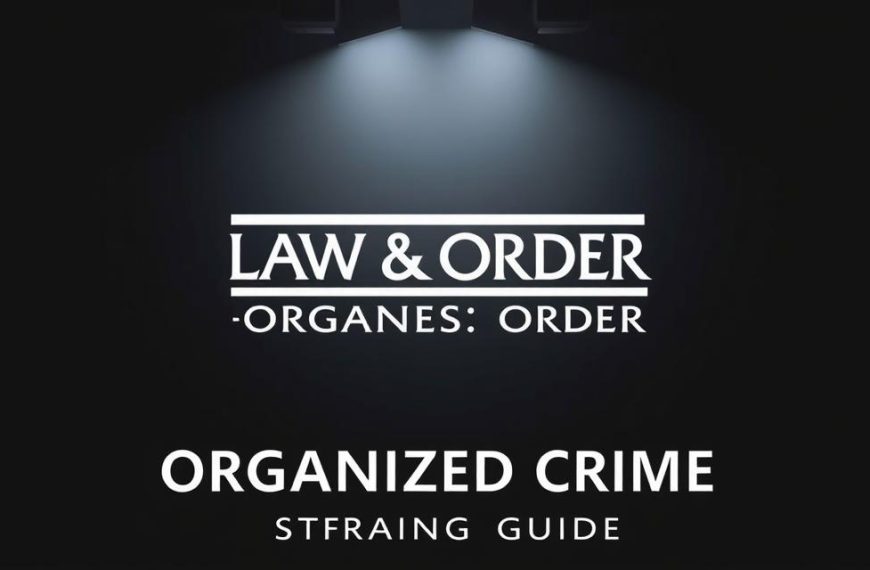Many Britons mistakenly believe living together long-term grants automatic legal protections similar to formal unions. This widespread misunderstanding persists despite no statutory recognition of informal partnerships under current legislation.
England and Wales treat cohabiting partners as distinct individuals, regardless of shared finances, property ownership, or child-rearing responsibilities. Unlike civil partnerships or registered marriages, there’s no default entitlement to spousal support or asset division if relationships end.
This guide explores crucial considerations for unmarried couples navigating property rights, parental obligations, and financial arrangements. We’ll examine practical steps to safeguard interests through cohabitation agreements and wills – vital measures given the absence of automatic protections.
While some assume duration of cohabitation creates legal ties, UK courts assess each case individually. Recent government statistics reveal nearly half of adults misunderstand their rights in long-term relationships, highlighting the need for clear guidance.
what is common law marriage: Clarifying the Myths in the UK
A widespread fallacy persists that unmarried partners gain automatic rights after years of cohabitation. Nearly 63% of Britons incorrectly assume shared residency creates legal ties, according to recent YouGov surveys. This confusion stems from outdated cultural narratives rather than actual legislation.
Media Myths vs Legal Facts
Television dramas and films frequently portray long-term partners as having spousal entitlements. No UK statute supports this fictional concept, despite its cultural prevalence. The term “common law” partner holds weight in tax codes but zero relevance in family court proceedings.
Evolution of Partnership Recognition
Victorian-era case law initially recognised informal unions due to limited marriage access. Modern courts abandoned this approach after the 1970s, as shown below:
| Era | Public Perception | Legal Reality |
|---|---|---|
| 19th Century | Informal unions tolerated | Limited property rights |
| Late 20th Century | Growing equality expectations | Formal registration required |
| 21st Century | Assumed automatic rights | No default protections |
Three in five cohabiting pairs mistakenly believe seven years together establishes legal status. In reality, duration holds no bearing – only formal registration through marriage or civil partnership creates binding obligations.
Legal Rights and Responsibilities for Cohabiting Partners
Unmarried partners face stark legal disparities compared to formally registered couples under British law. Cohabitation arrangements offer none of the automatic safeguards granted through marriage or civil partnerships. This gap leaves many unaware of their vulnerable position during separations or emergencies.
Cohabitation vs Legal Marriage
Formal unions establish clear frameworks for asset division, inheritance claims, and medical decision-making powers. Unregistered partners must navigate complex legal hurdles to achieve similar protections. Key differences include:
| Area | Married Couples | Cohabiting Partners |
|---|---|---|
| Financial Support | Court-ordered maintenance | No automatic entitlement |
| Property Rights | Equal division principles | Ownership determines claims |
| Medical Authority | Next-of-kin status | No default recognition |
Nearly 40% of cohabiting individuals mistakenly assume they inherit partners’ assets without wills. Unlike spouses, unmarried companions have zero automatic entitlement to pensions or properties unless specifically named in legal documents.
Financial sacrifices made during relationships rarely receive consideration in separation disputes. Partners contributing to mortgage payments or childcare costs often struggle to reclaim investments without legal protections established beforehand.
These disparities underscore why proactive planning remains essential. Drafting cohabitation agreements and updating wills helps mitigate risks inherent in informal partnerships.
Comparing Common Law, Civil Partnership and Marriage
Legal frameworks governing relationships in the UK create distinct realities for partners depending on their formal status. Registered unions offer structured protections, while informal arrangements leave individuals navigating unpredictable outcomes.
Differences in Legal Recognition
Formalised relationships provide automatic safeguards through established statutes. Consider these critical distinctions:
| Protection | Marriage | Civil Partnership | Cohabitation |
|---|---|---|---|
| Inheritance rights | Full spousal entitlement | Equal to marriage | None without will |
| Pension claims | Guaranteed | Equivalent access | Case-by-case basis |
| Tax benefits | Marriage allowance | Identical provisions | No shared allowances |
Same-sex partners gained parity through the 2013 Marriage Act, though cohabiting pairs remain equally exposed regardless of orientation. Only registered unions trigger automatic legal obligations during separations or bereavements.
Implications for Family Law
Courts approach disputes through different lenses based on relationship status. Key contrasts include:
- Asset division: Formal unions follow set formulae, while cohabitants rely on property laws
- Child arrangements: Parental responsibility isn’t automatic for unmarried fathers
- Financial settlements: Spousal maintenance rarely applies outside marriage/civil partnerships
Recent reforms allow opposite-sex civil partnerships, yet many still choose cohabitation unaware of the risks. As family law specialist Helena Kennedy QC observes: “Legal recognition isn’t about romance – it’s about creating safety nets that withstand life’s storms.”
Property Ownership and Financial Challenges for Cohabiting Couples
Property arrangements between unmarried partners often become legal minefields when relationships dissolve. Without formal agreements, couples face unpredictable outcomes when dividing homes or assets acquired during their time together.
Navigating Home Ownership and Assets
Jointly owned properties grant both partners equal rights to occupy the home and liability for mortgage repayments. Sole ownership scenarios create stark imbalances – the legal owner controls all decisions, while their partner risks losing housing security regardless of relationship duration.
Non-owning partners may pursue claims through TOLATA if they’ve contributed financially to the property. Successful cases require evidence like:
- Regular mortgage payments
- Documented home improvements
- Substantial household expense coverage
Proving these contributions becomes challenging when relationships rely on informal arrangements. Courts often reject claims based solely on childcare or domestic labour, as seen in recent cases like Keech v Jones.
Disputes over shared assets frequently escalate into costly court battles due to unclear ownership histories. Partners who renovated properties using savings might struggle to reclaim investments without paper trails. This uncertainty underscores why defining financial roles early proves crucial.
Preventive measures like understanding property rights before cohabiting help avoid future conflicts. Legal professionals increasingly recommend drafting ownership agreements when purchasing homes together – a practical step that clarifies entitlements from the outset.
Parental Rights and Child Maintenance Arrangements
Navigating parental responsibilities becomes critical when unmarried couples separate. UK law grants automatic rights to mothers, while fathers face specific conditions to secure legal recognition. These distinctions create practical challenges in managing childcare and financial obligations.
Establishing Parental Responsibility
Unmarried fathers obtain legal standing through three primary routes:
- Joint registration on the birth certificate
- Formal parental responsibility agreements
- Court-approved orders
Birth certificate inclusion remains the simplest method since 2003 reforms. Fathers not listed must apply through family courts, a process taking 6-8 months on average. Legal experts emphasise registering newborns promptly to avoid future complications.
Child maintenance obligations persist regardless of relationship status. The non-resident parent typically contributes through:
- Private agreements
- Child Maintenance Service calculations
- Court-enforced arrangements
Courts prioritise children’s welfare when determining residency and contact schedules. Recent cases demonstrate increased flexibility in accommodating step-parents and blended families. However, biological parents retain ultimate decision-making authority unless altered by specific court orders.
Proactive planning helps prevent disputes. Solicitor Emma Wilkins advises: “Formalising arrangements early creates stability for children during emotional transitions.” Regular reviews ensure agreements adapt to evolving family dynamics and financial circumstances.
Cohabitation Agreements and Protecting Your Rights
Formalising financial arrangements proves crucial for unmarried partners seeking clarity in shared living situations. Cohabitation agreements establish binding terms for managing joint responsibilities and unexpected life events.
Benefits and Importance of a Cohabitation Agreement
These legally recognised documents prevent disputes by outlining:
| Area | Coverage | Legal Weight |
|---|---|---|
| Property | Ownership percentages | Enforceable in court |
| Finances | Bill splits & savings | Binding if properly drafted |
| Children | Care arrangements | Subject to court review |
Solicitor-approved agreements carry greater evidentiary value than informal arrangements. They help partners avoid costly litigation by pre-defining asset division methods and financial obligations.
Regular Updates for Changing Circumstances
Life changes necessitate agreement revisions to maintain relevance. Key triggers include:
- Property purchases exceeding £50,000
- Birth or adoption of children
- Career changes affecting income
Legal professionals recommend reviewing terms every three years or after major life events. Partnering with family law specialists ensures documents reflect current legislation and personal circumstances.
Handling Relationship Breakdowns and Separation Disputes
Ending an unmarried partnership can lead to unexpected legal hurdles and financial disagreements. Unlike divorcing spouses, cohabiting couples lack predefined frameworks for resolving separation issues. This often results in protracted negotiations or court battles to determine fair outcomes.
Dividing Shared Assets Fairly
Courts assess contributions rather than assuming equal splits when relationships end. Key factors influencing asset distribution include:
| Evidence Type | Impact | Common Challenges |
|---|---|---|
| Financial contributions | Direct ownership claims | Missing payment records |
| Non-financial input | Potential compensatory awards | Proving domestic labour value |
| Verbal agreements | Limited enforceability | Conflicting recollections |
Recent cases demonstrate courts increasingly recognise indirect contributions, though claimants must provide documentary proof. Mediation often proves effective for resolving these matters without litigation.
When to Seek Legal Representation
Professional guidance becomes critical when:
- Disputes involve jointly owned properties
- Children’s living arrangements require formalisation
- Partners refuse to disclose financial information
Family law solicitor Amanda Hartley notes: “Early intervention prevents costly mistakes. Many clients regret informal agreements made during emotional distress.” Court applications under the Children Act 1989 or Trusts of Land Act 1996 often necessitate specialist support.
Timely legal advice helps navigate complex separation issues while protecting financial interests. Solicitors can draft binding agreements or represent clients in contentious cases, ensuring fair treatment under current law.
Accessing Expert Legal Advice and Support
Navigating cohabitation laws requires tailored guidance from professionals who understand evolving family dynamics. Specialist solicitors bridge the gap between informal arrangements and enforceable protections, offering bespoke solutions for modern relationships.
Identifying the Right Family Law Specialist
Choose solicitors with proven experience in unmarried couples’ rights. Look for these credentials:
- Accreditation from Resolution (family law association)
- Track record in cohabitation agreements
- Expertise in property disputes and parental responsibility
Reputable firms like Osbornes Law provide fixed-fee initial consultations to assess your needs. Services range from drafting legal documents to representing clients in complex court proceedings. Cost structures vary:
- Fixed fees for standard agreements (£500-£1,500)
- Hourly rates for litigation (£200-£400)
- Legal aid for qualifying low-income individuals
Prepare for meetings by gathering:
- Property ownership documents
- Financial contribution records
- Existing parenting arrangements
Early legal advice prevents 78% of disputes according to Citizens Advice case studies. As family solicitor Marion Watson notes: “A well-drafted cohabitation agreement often costs less than one hour of courtroom time.”
Establish ongoing relationships with your chosen specialist. Regular updates ensure agreements reflect life changes like property purchases or career shifts. This proactive approach safeguards both partners’ interests through every relationship stage.
Conclusion
Modern relationships demand proactive legal planning to avoid financial and emotional pitfalls. Protections don’t materialise through shared residency or relationship duration – they require deliberate action through formal agreements.
Cohabitation arrangements leave partners exposed without documented plans for property division or inheritance rights. Legal experts emphasise drafting wills and partnership contracts to safeguard assets and parental responsibilities.
Recent court cases confirm that verbal promises hold little weight compared to written evidence. Regular reviews of financial arrangements ensure fairness as circumstances evolve, particularly when purchasing homes or starting families.
Seeking specialist advice remains the most effective way to navigate complex family law landscapes. Proper preparation transforms informal partnerships into secure foundations, protecting both parties’ interests during life’s unexpected turns.




















